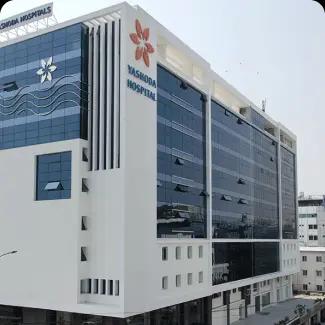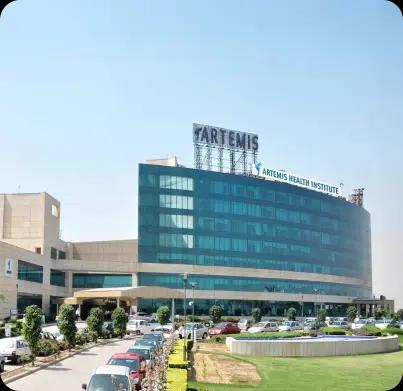
Immunoglobulin Therapy
Immunoglobulin therapy, commonly known as intravenous immunoglobulin (IVIG) or gamma globulin therapy, is a medical intervention involving the infusion of concentrated antibodies derived from pooled blood plasma. This therapy is integral in addressing various conditions marked by immune system dysfunction.
Free Pick up and Drop
No Cost EMI
Post Surgery Care
Immunoglobulin therapy, commonly known as intravenous immunoglobulin (IVIG) or gamma globulin therapy, is a medical intervention involving the infusion of concentrated antibodies derived from pooled blood plasma. This therapy is integral in addressing various conditions marked by immune system dysfunction.
Symptoms Of Immunoglobulin Therapy
Symptoms
Types of conditions
There are two main types of Immunoglobulin Therapy
Intravenous (IV) Administration
Subcutaneous Administration
Intravenous (IV) Administration
Administered through a vein, often performed in outpatient settings.
SYMPTOMS
-
Recurrent Infections: Immunoglobulin therapy reduces the frequency and severity of infections by supplementing the immune system.
-
Fatigue: Patients often experience an improvement in overall energy levels.
-
Muscle Weakness: Alleviation of weakness and motor impairments associated with certain conditions.
-
Autoimmune Symptoms: Relief from symptoms like joint pain and inflammation in autoimmune disorders.
Types of Immunoglobulins Used
Immunoglobulin therapy involves the use of different immunoglobulin types:
- IgG (Immunoglobulin G): Commonly used for replacement therapy.
- IgM (Immunoglobulin M): Known for its effectiveness against infections.
- IgA (Immunoglobulin A): Essential for mucosal immunity.
DIAGNOSIS
Immunoglobulin therapy, also known as IVIg (Intravenous Immunoglobulin) therapy, is a medical treatment that involves administering antibodies to help strengthen the immune system. Here's a breakdown of the treatment process:
-
Diagnosis and Assessment: Before starting immunoglobulin therapy, a healthcare provider will diagnose the specific condition that requires treatment and assess the patient's overall health status.
-
Treatment Planning: Based on the diagnosis and assessment, the healthcare provider will determine the appropriate dosage, frequency, and duration of immunoglobulin therapy.
-
Intravenous Infusion: Immunoglobulin therapy is typically administered through intravenous infusion, where a needle is inserted into a vein (usually in the arm) to deliver the medication directly into the bloodstream.
The infusion process usually takes several hours and may be done in a hospital, clinic, or at home by a trained healthcare professional.
-
Subcutaneous Injection: In some cases, immunoglobulin therapy may be administered via subcutaneous injection, where the medication is injected under the skin using a small needle. Subcutaneous injections are often self-administered by the patient at home, following proper training and guidance from a healthcare provider.
-
Monitoring and Follow-Up: Throughout the course of immunoglobulin therapy, patients are closely monitored for any adverse reactions or side effects. Regular follow-up appointments with a healthcare provider are scheduled to assess treatment response, adjust dosage if needed, and address any concerns or complications.
-
Lifestyle and Supportive Care: Patients undergoing immunoglobulin therapy may be advised to maintain a healthy lifestyle, including proper nutrition, regular exercise, and adequate rest. Supportive care measures, such as managing symptoms and preventing infections, may also be recommended to optimize treatment outcomes.
-
Long-Term Management: Depending on the underlying condition being treated, immunoglobulin therapy may be administered as a short-term intervention to address acute symptoms or as a long-term maintenance therapy to manage chronic conditions. Long-term management involves regular monitoring, periodic evaluations, and adjustments to the treatment plan as necessary to ensure continued effectiveness and safety.
CAUSES AND RISK FACTORS
Primary Immunodeficiency Disorders (PID): Genetic factors leading to defects in the immune system.
Autoimmune Disorders: Dysfunction where the immune system attacks the body's tissues. CIDP (Chronic Inflammatory Demyelinating Polyneuropathy): Affecting peripheral nerves and causing weakness.
Genetic Predisposition: Family history of immunodeficiency or autoimmune conditions.
Age: Certain conditions are more prevalent in specific age groups.
Environmental Triggers: Exposure to environmental factors triggering autoimmune responses.
PREPARING FOR SURGERY
Proper preparation is crucial for successful immunoglobulin therapy:
- Medical Evaluation: A comprehensive assessment of the patient's overall health and medical history.
- Blood Tests: Necessary to determine antibody levels and compatibility.
- Patient Education: Understanding the administration process, potential side effects, and the importance of regular therapy sessions.
TREATMENT DETAILS
Preparing for Therapy
Proper preparation is crucial for successful immunoglobulin therapy:
-
Medical Evaluation: A comprehensive assessment of the patient's overall health and medical history.
-
Blood Tests: Necessary to determine antibody levels and compatibility.
-
Patient Education: Understanding the administration process, potential side effects, and the importance of regular therapy sessions.
Types of Surgery
-
Intravenous (IV) Administration: Typically administered in a clinic or hospital setting by healthcare professionals.
-
Subcutaneous Administration: Some patients may receive training to self-administer subcutaneous injections at home.
Technology Used/Facilities Available
Immunoglobulin therapy involves the use of advanced technologies and facilities:
-
Infusion Pumps: Used for precise and controlled administration of immunoglobulin solutions.
-
Home Infusion Services: Certain patients may have the option of receiving therapy at home for increased convenience.
RECOVERY
-
Monitoring: Regular check-ups are essential to assess treatment effectiveness and monitor potential side effects.
-
Side Effects: Common side effects include mild reactions such as headache, fever, or fatigue, typically transient and manageable.
Your journey to good health begins here

Accredited Hospitals
Nationally accredited hospitals for high-quality care

Multi-language Support
Convey your needs in the language you're most comfortable in

Travel Booking Assistance
Seamless booking assistance for your healthcare journey

Personalised Treatment Plans
A treatment journey tailored to all your preferences and needs

Unparalleled Hospitality
Experience exceptional hospitality during your stay

Easy Medical Visa Approvals
Dedicated assistance for medical visa requirements
Plan your healthcare journey with Karetrip!
India’s Best Hospitals are Partnered With Karetrip
Access World-Class facilities from top Hospitals across India
Consult with India’s most experienced doctors
Experience premium care from India’s leading specialists

Dr. V V Lakshminarayanan
Nephorologist
45+ Years Of Experience

Dr. Ashok Kumar R
Nephrologist
21+ Years Of Experience

Dr. Sathish M. Rao
Nephrologist
33+ Years Of Experience

Dr. Navdeep Singh Khaira
Nephrologist
38+ Years Of Experience

Dr. Sandeep Guleria
Nephrologist
35+ Years Of Experience

Dr. Alka Bhasin
Nephrologist
24+ Years Of Experience
Cost Estimation
Learn about the expenses involved in the procedure and what factors affect them.

The cost of immunoglobulin therapy is influenced by various factors, including:
-
Dosage and Frequency: Higher doses or more frequent treatments may increase overall costs.
-
Treatment Duration: Long-term therapy may contribute to higher expenses.
-
Administration Method: The chosen method, whether intravenous or subcutaneous, may impact costs.
-
Insurance Coverage: Individual insurance plans greatly influence out-of-pocket expenses.
Here's a table showing the estimated cost range across different cities in India:
The average cost of the Immunoglobulin Therapy in India is around null to null.

High Cost
Average Cost
Low Cost
The LIST of AVERAGE COST of the Immunoglobulin Therapy across TOP 0 cities in India in Indian Rupee (INR) is as follows :
City
Lowest Cost
Average Cost
Highest Cost
Commonly Asked Questions
How long does each infusion session take?
Intravenous sessions may take a few hours, while subcutaneous injections are generally shorter.
Can immunoglobulin therapy be self-administered?
Yes, subcutaneous administration allows eligible patients to self-administer with proper training.
What is the frequency of treatment sessions?
Frequency varies, ranging from weekly to monthly sessions, depending on the specific condition and individual needs.
Are there alternatives to intravenous administration?
Subcutaneous administration provides an alternative for some patients, offering increased flexibility.
Are there long-term risks associated with immunoglobulin therapy?
Serious complications are rare, but individual responses may vary. Regular monitoring helps manage any potential risks associated with prolonged therapy.

Do you still have a query?


"I had a successful surgery at Fortis Escorts Hospital, and it was all thanks to Karetrip's help in finding the right hospital for me. The entire process was smooth and stress-free, with Karetrip handling all the arrangements and answering any questions I had. The medical team at the hospital was outstanding, and the facilities were top-notch. I highly recommend Karetrip to anyone looking for a tension-free healthcare experience."
Read MoreFatima
Chattogram


"Thanks to Karetrip, I got connected with MAX Hospital in New Delhi. The team guided me through every step – from finding the right doctor to handling travel and visas. They made a daunting process feel like a breeze. The care I received at MAX Hospital was outstanding, and I can't thank Karetrip enough for making it possible. They truly put patients first and go the extra mile to ensure a smooth healthcare journey. I'm grateful beyond words!"
Read MoreHasan
Dhaka


"At first, I was unsure about having a medical procedure done in a foreign country. However, Karetrip's team at Indraprastha Apollo Hospital made me feel much better. The hospital was very clean, modern, and had everything they needed to help me. The staff were very kind and did everything they could to make me feel comfortable. I'm really happy with how my treatment turned out, and I appreciate Karetrip for making it easy and stress-free."
Read MoreImran
Sylhet
 Google Reviews4.9/5
Google Reviews4.9/5




I had a successful surgery at Fortis Escorts Hospital, and it was all thanks to Karetrip's help in finding the right hospital for me. The entire process was smooth and stress-free, with Karetrip handling all the arrangements and answering any questions I had. The medical team at the hospital was outstanding, and the facilities were top-notch. I highly recommend Karetrip to anyone looking for a tension-free healthcare experience.
Fatima
Chattogram
 Google Reviews4.9/5
Google Reviews4.9/5



















